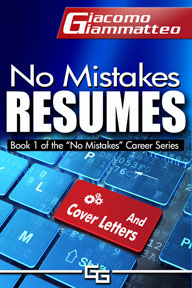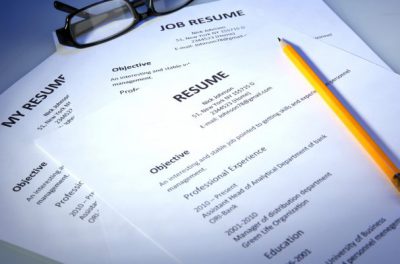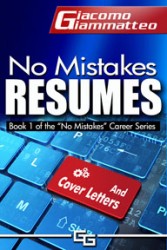What Is a Resume?
By definition it is:
- a brief account of one’s professional or work experience and qualifications.
- a set of accomplishments.
- a brief written account of personal, educational, and professional qualifications.
But That Doesn’t Begin To Explain It.
- A resume might take you from a job where you feel unwanted and unappreciated to one where you’re the star of the show.
- A resume might be the catalyst for a promotion that allows you to afford the new house you’ve been wanting, or the vacation to Italy (where else?) you’ve waited years for.
- A resume could even put you into a new start-up where you are part of an exciting technological breakthrough that leads to…who knows where?
- A resume could be your ticket to a new life. It might whisk you across the country, or even to a new country.
A Resume Is The Potential To Fulfill A Dream
Think of the people that got in early on a few of the hugely successful start-ups: Google, Twitter, Facebook, and many, many others. Think of the thousands of people who applied for some of those jobs—and never got called for an interview. I know some of them, and a few of them could have made fantastic contributions, but they didn’t get the interviews. Later, when I saw their resumes, I understood why. They were terrible. Worst of all, they reeked of boilerplate resumes. Not in format, don’t misunderstand about that. I believe that all resumes should look damn near identical in terms of format. Like a good clean suit. It’s content that matters. And the only way to get impressive content is to tailor your resume for each job. Every one!
I don’t have hard-core statistics to back this up, but from what I’ve seen during 30 years of recruiting, I’d venture to say that 99% of all resumes are not tailored for each job. Most people put their resume together, and they hate the process so much that they never want to do it again…so they don’t.
Think About This
Every time you submit a resume for a new position, it’s like slipping a key into a magical door. Close your eyes and imagine the wonders that might lie behind it.
With all that a resume could be, don’t you think it’s worth a little of your time? Don’t you think you could write a separate resume for each of those magical doors to somewhere else?
If you haven’t gotten the No Mistakes Resumes ✓list, sign up here! It’s free.
























This is truly an interesting post. The last time I was looking for a job I was fortunate enough to have help from a major Placement Organization. The counselor there always said that you needed to have a single, general resume that was very carefully crafted to present your skills and experiences. The cover letter is the place for individualizing your information for a specific position. I generally followed their advice, except that I developed about three resumes to cover the breadth of jobs that I might be interested in.
My overall experience suggests that having a specifically tailored resume for each position is really the way to go. Further, it relieves the burden from the cover letter, which can be short and direct. In most organizations I have found that the resume gets passed around to potential interviewers in the hiring organization — but not necessarily the cover letter. A great resume takes time, but it is critically important to getting an interview. If you’re really interested in the position it’s worth having a resume that best describes how you might fit.
Twitter: JimGiammatteo
says:
Hi, Tom: Thanks for stopping by. Unfortunately, there are as many opinions on how to do resumes as there are resume “templates.” In my book I try to boil it down to just one template, but one that people tailor to suit the job. I really do think that’s critical if you want the interview.